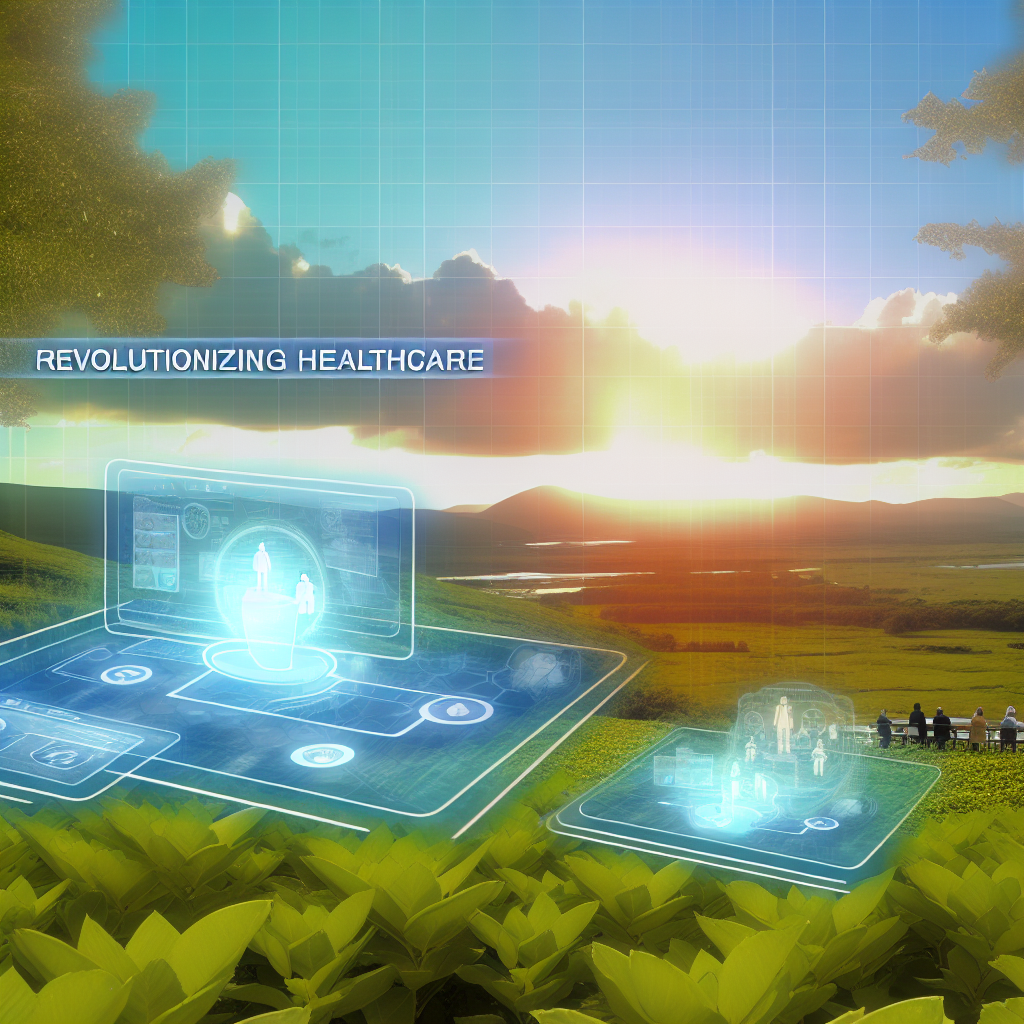HIPAA Compliance: Ensuring Patient Privacy in Modern Healthcare IT Systems
In the rapidly evolving landscape of healthcare, the integration of modern IT systems has become indispensable. These systems not only enhance the efficiency of healthcare delivery but also play a crucial role in safeguarding patient information. However, with the increasing reliance on digital platforms, ensuring compliance with the Health Insurance Portability and Accountability Act (HIPAA) has become more critical than ever. HIPAA, enacted in 1996, sets the standard for protecting sensitive patient data, and its compliance is mandatory for healthcare providers, insurers, and their business associates. As healthcare IT systems become more sophisticated, maintaining HIPAA compliance presents both challenges and opportunities for healthcare organizations.
To begin with, the primary objective of HIPAA is to protect patient privacy and ensure the confidentiality, integrity, and availability of electronic protected health information (ePHI). This is particularly important in an era where data breaches and cyber threats are on the rise. Healthcare organizations must implement robust security measures to prevent unauthorized access to patient data. This involves adopting advanced encryption technologies, secure access controls, and regular security audits. By doing so, healthcare providers can mitigate the risk of data breaches and ensure that patient information remains confidential.
Moreover, the transition to electronic health records (EHRs) has revolutionized the way patient information is stored and accessed. While EHRs offer numerous benefits, such as improved patient care coordination and reduced medical errors, they also pose significant challenges in terms of data security. Healthcare organizations must ensure that their EHR systems are HIPAA-compliant by implementing stringent security protocols. This includes conducting regular risk assessments to identify potential vulnerabilities and taking corrective actions to address them. Additionally, healthcare providers must ensure that their staff is adequately trained in HIPAA regulations and the proper handling of ePHI.
Furthermore, the rise of telemedicine and mobile health applications has added another layer of complexity to HIPAA compliance. These technologies have made healthcare more accessible, especially for patients in remote areas. However, they also require healthcare organizations to extend their security measures beyond traditional IT systems. Ensuring that telemedicine platforms and mobile applications are secure and HIPAA-compliant is essential to protect patient privacy. This involves working closely with technology vendors to ensure that their products meet HIPAA standards and regularly monitoring these platforms for any security breaches.
In addition to technological measures, fostering a culture of compliance within healthcare organizations is crucial. This involves creating a comprehensive HIPAA compliance program that includes policies and procedures for handling ePHI, regular training sessions for staff, and a clear incident response plan in case of a data breach. By promoting a culture of compliance, healthcare organizations can ensure that all employees understand the importance of protecting patient information and are equipped to handle it responsibly.
In conclusion, as healthcare IT systems continue to evolve, ensuring HIPAA compliance remains a top priority for healthcare organizations. By implementing robust security measures, conducting regular risk assessments, and fostering a culture of compliance, healthcare providers can protect patient privacy and maintain the trust of their patients. As the healthcare industry continues to embrace digital transformation, staying vigilant and proactive in addressing HIPAA compliance challenges will be essential to safeguarding patient information in the modern healthcare landscape.
EHR Innovations: Transforming Patient Care Through Advanced Electronic Health Records
In recent years, the healthcare industry has witnessed a significant transformation driven by the integration of advanced electronic health records (EHR) systems. These innovations in EHR technology are reshaping patient care, offering unprecedented opportunities for improving healthcare delivery and outcomes. As healthcare systems increasingly adopt modern IT strategies, the role of EHRs has become pivotal in streamlining operations, enhancing patient engagement, and facilitating data-driven decision-making.
One of the most notable advancements in EHR technology is the shift towards interoperability. This development allows disparate healthcare systems to communicate seamlessly, ensuring that patient information is accessible across different platforms and institutions. By enabling the exchange of health data in real-time, interoperability reduces the risk of medical errors, enhances care coordination, and ultimately leads to better patient outcomes. Moreover, it empowers healthcare providers to make informed decisions by having a comprehensive view of a patient’s medical history, regardless of where they received care.
In addition to interoperability, the integration of artificial intelligence (AI) and machine learning into EHR systems is revolutionizing patient care. These technologies enable the analysis of vast amounts of health data, uncovering patterns and insights that were previously unattainable. For instance, AI algorithms can predict patient deterioration, identify potential diagnoses, and recommend personalized treatment plans. This not only enhances the accuracy of clinical decisions but also allows for proactive interventions, reducing hospital readmissions and improving overall patient health.
Furthermore, the incorporation of telehealth capabilities into EHR systems has expanded access to care, particularly for patients in remote or underserved areas. Telehealth services, supported by robust EHR platforms, facilitate virtual consultations, remote monitoring, and continuous patient engagement. This integration ensures that healthcare providers can deliver timely and effective care, regardless of geographical constraints. As a result, patients benefit from increased convenience and reduced travel burdens, while healthcare systems can optimize resource allocation and reduce operational costs.
Another critical aspect of modern EHR innovations is the emphasis on patient-centered care. Advanced EHR systems are designed to enhance patient engagement by providing individuals with access to their health information through user-friendly portals. These platforms empower patients to take an active role in managing their health, enabling them to track their progress, schedule appointments, and communicate with their healthcare providers. By fostering a collaborative relationship between patients and providers, EHR systems contribute to improved adherence to treatment plans and greater patient satisfaction.
Despite these advancements, the implementation of EHR systems is not without challenges. Data security and privacy concerns remain paramount, as the digitization of health records increases the risk of cyber threats. Healthcare organizations must invest in robust cybersecurity measures to protect sensitive patient information and maintain trust. Additionally, the transition to advanced EHR systems requires significant financial investment and organizational change, which can be daunting for some institutions. However, the long-term benefits of improved patient care and operational efficiency often outweigh these initial hurdles.
In conclusion, the ongoing innovations in electronic health records are transforming the healthcare landscape, offering new possibilities for enhancing patient care through modern IT strategies. By embracing interoperability, AI integration, telehealth capabilities, and patient-centered approaches, healthcare systems can deliver more efficient, effective, and personalized care. As the industry continues to evolve, the role of EHRs will undoubtedly expand, driving further advancements in healthcare delivery and ultimately improving the health and well-being of patients worldwide.
Medical Data Management: Strategies for Secure and Efficient Data Handling in Healthcare
In the rapidly evolving landscape of healthcare, the integration of modern IT strategies into medical data management has become a pivotal focus for healthcare systems worldwide. As the volume of medical data continues to grow exponentially, driven by advancements in medical technology and the increasing digitization of health records, the need for secure and efficient data handling strategies has never been more critical. This necessity is underscored by the dual imperatives of safeguarding patient privacy and ensuring the seamless accessibility of data for healthcare providers.
To begin with, the implementation of robust data encryption techniques is fundamental in protecting sensitive medical information from unauthorized access. Encryption serves as a first line of defense, transforming data into a secure format that can only be deciphered by authorized parties. This is particularly crucial in an era where cyber threats are becoming increasingly sophisticated, posing significant risks to the confidentiality and integrity of patient data. By employing advanced encryption protocols, healthcare systems can mitigate the risk of data breaches, thereby maintaining the trust of patients and complying with stringent regulatory requirements such as the Health Insurance Portability and Accountability Act (HIPAA).
In addition to encryption, the adoption of comprehensive data governance frameworks is essential for effective medical data management. These frameworks provide a structured approach to data handling, encompassing policies, procedures, and standards that ensure data accuracy, consistency, and security. By establishing clear guidelines for data access and usage, healthcare organizations can enhance data quality and facilitate better decision-making processes. Moreover, data governance frameworks support compliance with legal and ethical standards, thereby safeguarding the rights of patients and fostering a culture of accountability within healthcare institutions.
Furthermore, the integration of cloud computing technologies into healthcare systems offers a promising avenue for enhancing data management capabilities. Cloud-based solutions provide scalable storage options and enable real-time data sharing across different healthcare facilities, thereby improving the efficiency of data handling processes. This is particularly beneficial in facilitating collaborative care models, where multiple healthcare providers need to access and update patient information seamlessly. However, it is imperative that healthcare organizations carefully evaluate the security measures of cloud service providers to ensure that data privacy is not compromised in the process.
Another critical aspect of modern IT strategies in healthcare is the implementation of advanced data analytics tools. These tools enable healthcare providers to derive actionable insights from vast amounts of medical data, thereby enhancing clinical decision-making and improving patient outcomes. By leveraging predictive analytics, for instance, healthcare systems can identify potential health risks and intervene proactively, ultimately reducing the incidence of adverse events and optimizing resource allocation. Additionally, data analytics can support personalized medicine approaches, tailoring treatments to individual patient needs and improving the overall quality of care.
In conclusion, the secure and efficient management of medical data is a cornerstone of modern healthcare systems, necessitating the adoption of sophisticated IT strategies. By prioritizing data encryption, establishing robust governance frameworks, embracing cloud technologies, and harnessing the power of data analytics, healthcare organizations can navigate the complexities of data management while safeguarding patient privacy and enhancing care delivery. As the healthcare landscape continues to evolve, these strategies will play an increasingly vital role in shaping the future of medical data management, ensuring that healthcare systems remain resilient, responsive, and patient-centered.
Clinical Support Technologies: Enhancing Decision-Making in Healthcare Systems
In the rapidly evolving landscape of healthcare, the integration of information technology has become indispensable, particularly in enhancing clinical decision-making processes. As healthcare systems strive to improve patient outcomes and operational efficiency, clinical support technologies have emerged as pivotal tools. These technologies, which encompass a range of applications from electronic health records (EHRs) to advanced data analytics, are transforming the way healthcare professionals make decisions, ultimately leading to more informed and effective patient care.
One of the primary benefits of clinical support technologies is their ability to provide healthcare professionals with timely access to comprehensive patient data. Electronic health records, for instance, consolidate patient information from various sources, offering a holistic view of a patient’s medical history. This integration not only facilitates more accurate diagnoses but also enables personalized treatment plans. Moreover, EHRs enhance communication among healthcare providers, ensuring that all members of a patient’s care team are informed and aligned in their approach.
In addition to EHRs, decision support systems (DSS) play a crucial role in augmenting clinical decision-making. These systems leverage algorithms and evidence-based guidelines to assist healthcare providers in diagnosing conditions, selecting appropriate treatments, and predicting patient outcomes. By analyzing vast amounts of data, DSS can identify patterns and correlations that may not be immediately apparent to clinicians. This capability is particularly valuable in complex cases where multiple variables must be considered. Consequently, decision support systems not only enhance the accuracy of clinical decisions but also reduce the likelihood of human error.
Furthermore, the advent of artificial intelligence (AI) and machine learning in healthcare has opened new avenues for clinical support technologies. AI-driven tools can process and analyze large datasets at unprecedented speeds, providing insights that were previously unattainable. For example, AI algorithms can assist in early detection of diseases by identifying subtle changes in medical images or lab results that may indicate the onset of a condition. This early intervention can significantly improve patient outcomes by enabling timely treatment.
Despite the numerous advantages of clinical support technologies, their implementation is not without challenges. One significant concern is the integration of these technologies into existing healthcare workflows. Ensuring that new systems are compatible with current practices and do not disrupt the workflow is essential for their successful adoption. Additionally, there is the issue of data security and patient privacy. As healthcare systems become increasingly digitized, safeguarding sensitive patient information from cyber threats is paramount. Healthcare organizations must invest in robust security measures to protect data integrity and maintain patient trust.
Moreover, the reliance on technology in clinical decision-making raises questions about the role of human judgment. While clinical support technologies provide valuable insights, they should complement, not replace, the expertise and intuition of healthcare professionals. It is crucial for clinicians to critically evaluate the recommendations provided by these systems and consider them within the broader context of each patient’s unique circumstances.
In conclusion, clinical support technologies are revolutionizing decision-making in healthcare systems by providing healthcare professionals with enhanced tools for diagnosis, treatment, and patient management. As these technologies continue to evolve, they hold the promise of further improving patient outcomes and healthcare efficiency. However, their successful integration requires careful consideration of workflow compatibility, data security, and the balance between technological assistance and human expertise. By addressing these challenges, healthcare systems can fully harness the potential of modern IT strategies to deliver high-quality, patient-centered care.
Tech Integration in Healthcare: Navigating the Latest Health IT Trends and Strategies
In the rapidly evolving landscape of healthcare, the integration of modern information technology strategies has become a pivotal component in enhancing patient care and operational efficiency. As healthcare systems strive to meet the increasing demands of a diverse patient population, the adoption of advanced IT solutions is not merely an option but a necessity. This transformation is driven by the need to improve patient outcomes, streamline operations, and ensure data security, all while adhering to regulatory requirements.
One of the most significant trends in healthcare IT is the implementation of electronic health records (EHRs). EHRs have revolutionized the way patient information is stored, accessed, and shared among healthcare providers. By digitizing patient records, healthcare systems can ensure that critical information is available in real-time, facilitating better coordination of care. Moreover, EHRs contribute to reducing medical errors, as they provide healthcare professionals with comprehensive patient histories, including allergies, medications, and previous treatments. This seamless access to information enhances decision-making processes and ultimately leads to improved patient outcomes.
In addition to EHRs, telemedicine has emerged as a transformative force in healthcare delivery. The COVID-19 pandemic accelerated the adoption of telehealth services, highlighting their potential to provide accessible and convenient care. Telemedicine allows patients to consult with healthcare providers remotely, breaking down geographical barriers and reducing the need for in-person visits. This not only increases access to care for individuals in remote or underserved areas but also alleviates the burden on healthcare facilities. As telemedicine continues to evolve, integrating it with existing healthcare IT systems will be crucial to ensure a cohesive and efficient patient care experience.
Furthermore, the rise of big data analytics in healthcare is reshaping how organizations approach patient care and operational management. By harnessing the power of data, healthcare providers can gain valuable insights into patient populations, identify trends, and predict potential health risks. This data-driven approach enables personalized medicine, where treatments and interventions can be tailored to individual patient needs. Additionally, big data analytics can optimize resource allocation, reduce costs, and improve overall healthcare delivery by identifying inefficiencies and areas for improvement.
However, the integration of these advanced IT strategies is not without challenges. One of the primary concerns is ensuring the security and privacy of patient data. With the increasing digitization of health records and the proliferation of connected devices, healthcare systems are more vulnerable to cyber threats. Implementing robust cybersecurity measures is essential to protect sensitive information and maintain patient trust. This includes adopting encryption technologies, conducting regular security audits, and providing comprehensive training for staff on data protection practices.
Moreover, the successful integration of IT solutions requires a cultural shift within healthcare organizations. It is imperative for healthcare professionals to embrace technology and adapt to new workflows. This involves continuous education and training to ensure that staff are proficient in using new systems and tools. Additionally, fostering a collaborative environment where IT and healthcare teams work together is crucial for the seamless implementation of technology-driven strategies.
In conclusion, the integration of modern IT strategies in healthcare is a dynamic and ongoing process that holds immense potential for improving patient care and operational efficiency. As healthcare systems navigate the latest health IT trends, it is essential to prioritize data security, embrace a culture of innovation, and leverage technology to deliver high-quality, patient-centered care. By doing so, healthcare organizations can position themselves at the forefront of a rapidly changing industry, ultimately enhancing the health and well-being of the populations they serve.
Unlock the future of healthcare with cutting-edge IT strategies. Discover how modern technology is transforming healthcare systems. Explore Healthcare IT Insights now!










